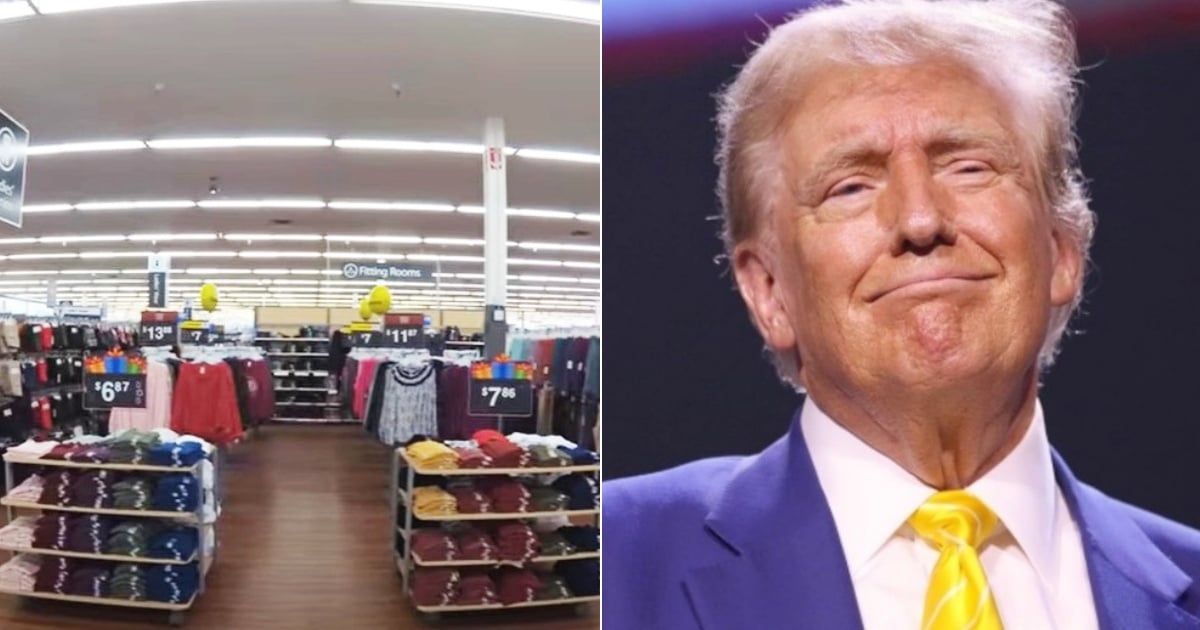American retailers are raising alarms that consumers might once again encounter empty shelves and supply chain disruptions reminiscent of the COVID era. This is if the current tariffs imposed by President Donald Trump on Chinese imports persist, as reported by NBC.
Recently, a 145% tariff was slapped on nearly all goods coming from China, prompting many businesses to cancel shipments and halt new orders. Data from Port Optimizer suggests a 33% year-over-year decline in cargo ships arriving at the Port of Los Angeles by May 10.
Typically, retailers would be ramping up orders for back-to-school and holiday shopping seasons. However, the drop in shipments raises concerns about product availability. Jonathan Gold, vice president of supply chain and customs policy at the National Retail Federation, commented, "They're making their holiday purchasing decisions now," adding, "It's challenging for people to know how to place orders and price them correctly with all the uncertainty surrounding the tariffs."
Economic Fallout for Businesses and Consumers
Under the new tariff system, a company must pay at least $145 in tariffs to import a $100 item, with exceptions for electronics and pharmaceuticals facing lower fees. This could force numerous companies to sell at a loss or hike prices to levels unacceptable for consumers.
Chinese companies told NBC that American firms, such as Target, have paused orders. A seller of press-on nails shared that her products remain in China, and she doesn't anticipate shipping anything in the first half of the year.
The National Retail Federation forecasts a potential 20% drop in imports in the second half of the year if the tariffs continue. Among the items that might vanish from store shelves are footwear, clothing, toys, and budget electronics, which largely rely on Chinese manufacturing. Additionally, perishable goods like apple juice and fish face storage challenges due to limited shelf life.
Expert Warnings
"Just like during the pandemic when we experienced toilet paper shortages, we're going to start seeing this with more products," warned Sean Stein, chairman of the U.S.-China Business Council. He further cautioned, "In a few weeks, we'll run out of stock, and if the government waits to address the issue until we experience shortages and hoarding, it will be too late."
An industry lobbying source revealed that the potential for empty shelves has caused greater concern at the White House than previous warnings about price hikes. There's particularly worry about shortages during key festive dates such as the Fourth of July and Christmas.
Government Response and Future Outlook
After meeting with major retailers, Trump stated he is considering tariff reductions, yet no formal actions have been taken. He later mentioned meetings with Chinese officials, although they denied any official trade talks.
While some retailers managed to expedite shipments before the tariff hike, many small businesses couldn't do the same due to financial constraints. Jessica Berger, founder of Bundle x Joy, faces a tariff bill of $180,000. "Thankfully, I have the resources now, but six months ago, I wouldn't have. It could have bankrupted me," she told the media. Berger noted that since almost all dog toys are made in China, she sees no viable production alternatives and will be forced to raise prices.
"I think we're going to see a very limited supply of discretionary items, and consumers might simply not buy as much because products won't be available, and if they are, they'll be much more expensive," she said.
Potential Logistics Collapse
Importers unable to bear the tariffs might leave thousands of containers unclaimed at ports, Stein warned: "We could have thousands of containers stuck, clogging the port. It's going to be a disaster." Even if tariffs were reduced now, supply chain disruptions could take weeks or months to resolve.
Dean Croke, an analyst with DAT Freight and Analytics, explained, "There's an eight-week period where volumes will plummet before they can even begin to recover, and that's if the situation returns to normal." This phenomenon would also affect the ground transportation sector, with trucks rerouting to other destinations and freight rates dropping, potentially driving drivers out of the industry. Croke concluded, "It could take well into the second half of this year before the truck volume rebounds, even if everything returned to normal now."
Impact of Tariffs on U.S. Retail and Supply Chain
How are Trump's tariffs affecting U.S. retailers?
The tariffs are leading to potential product shortages and increased costs for retailers, forcing some to cancel shipments and revise pricing strategies.
What products are most at risk of disappearing from shelves?
Footwear, clothing, toys, low-cost electronics, and some perishable goods like apple juice and fish are at high risk due to their reliance on Chinese manufacturing.
What might happen if the tariffs continue?
Continued tariffs could result in a significant drop in imports, further supply chain disruptions, and higher consumer prices, potentially leading to shortages during key shopping periods.
